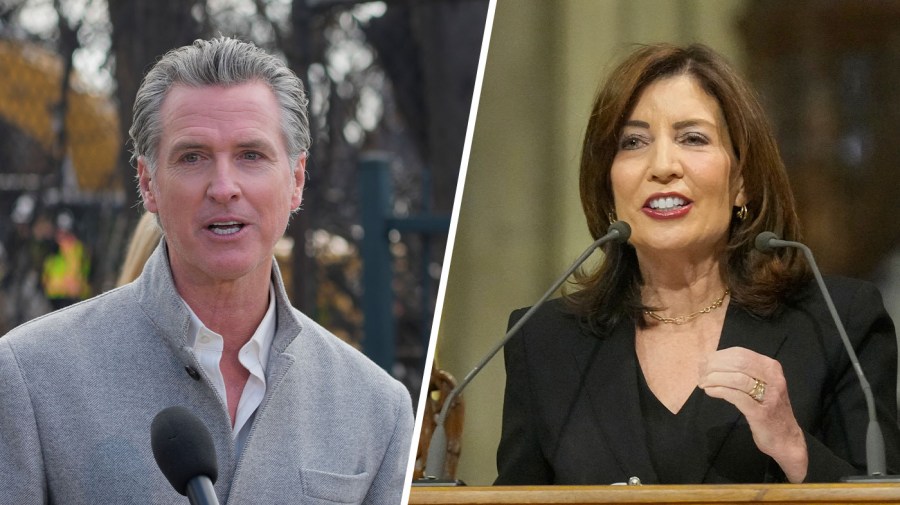A group of northeastern states and New York City on Thursday formally announced a joint public health coalition to collaborate on evidence-based public health, including vaccines, in a direct challenge to the Trump administration’s efforts to upend federal vaccine policy.
It’s the latest example of vaccine policy fracturing along party lines, as blue states seek to insulate their residents from the effects of the federal government’s increasingly antagonistic stance towards vaccines.
The Northeast Public Health Collaborative is comprised of Connecticut, Maine, Massachusetts, New Jersey, New York, Pennsylvania, Rhode Island and New York City.
The states jointly recommended infants and toddlers between 6 and 23 months old and adults older than 19 should receive the most recent coronavirus vaccines. They said healthy children and adolescents between the ages of 2 and 18 years can get the COVID vaccine if their parents want it.
The states have been working together since early this year, but representatives from state health departments met in Rhode Island last month to work out the specifics, officials said.
The effort built on existing public health efforts between the states and is designed to “protect the health, safety and well-being of all residents,” the group said.
Similarly, a coalition of western states on Wednesday issued vaccine recommendations ahead of the winter respiratory virus season.
The West Coast Health Alliance — comprised of California, Oregon, Washington and Hawaii— recommended that every resident 6 months and older receive the flu vaccine this fall. They also recommended a COVID-19 vaccine for all children between the ages of 6 months and 2 years old as well as pregnant women.
The states also recommended RSV vaccines be given to infants under 8 months and adults over 75.
The recommendations from both coalitions closely match those made by major medical organizations like the American Academy of Pediatrics (AAP), the American College of Obstetricians and Gynecologists (ACOG) and the American Academy of Family Physicians (AAFP).
But they differ from the Food and Drug Administration and Centers for Disease Control (CDC) and Prevention, which no longer recommends COVID-19 vaccination for healthy children or pregnant women.
Federal health agencies have not taken action to change recommendations around flu vaccines or RSV shots.
The western states issued the recommendations ahead of a key two-day meeting of CDC’s Advisory Committee on Immunization Practices (ACIP).
Typically, after the FDA approves a vaccine for use, ACIP makes recommendations on who should be immunized. The Affordable Care Act requires insurers to cover the vaccines endorsed by ACIP.
But the committee’s credibility has been challenged by medical experts and Sen. Bill Cassidy (R-La.) after Health Secretary Robert F. Kennedy Jr. removed all 17 of its original members and handpicked their replacements, some of whom have publicly expressed skepticism about vaccine safety.
The recommendations were drafted after state health officers, who are all medical doctors, said they consulted with subject matter experts and reviewed guidelines from the national medical organizations.
Prior to Kennedy taking over as healt secretary, major medical organizations were typically aligned with the federal government, taking part in meetings discussing immunization recommendations.
When Kennedy gutted ACIP, groups charted their own path. The AAP chose not to engage in what it called an “illegitimate” ACIP meeting this summer.
At the same time, California Gov. Gavin Newsom (D) signed a law requiring insurance plans to cover vaccines recommended by the state. It’s not clear whether insurance companies in the other states would be required to follow the state recommendations and cover vaccinations for individuals outside of federal guidelines.
Most major insurance companies have said they will continue to cover all immunizations that were recommended by ACIP as of Sept. 1, including updated formulations of the COVID-19 and influenza vaccines, with no cost-sharing for patients through the end of 2026.

